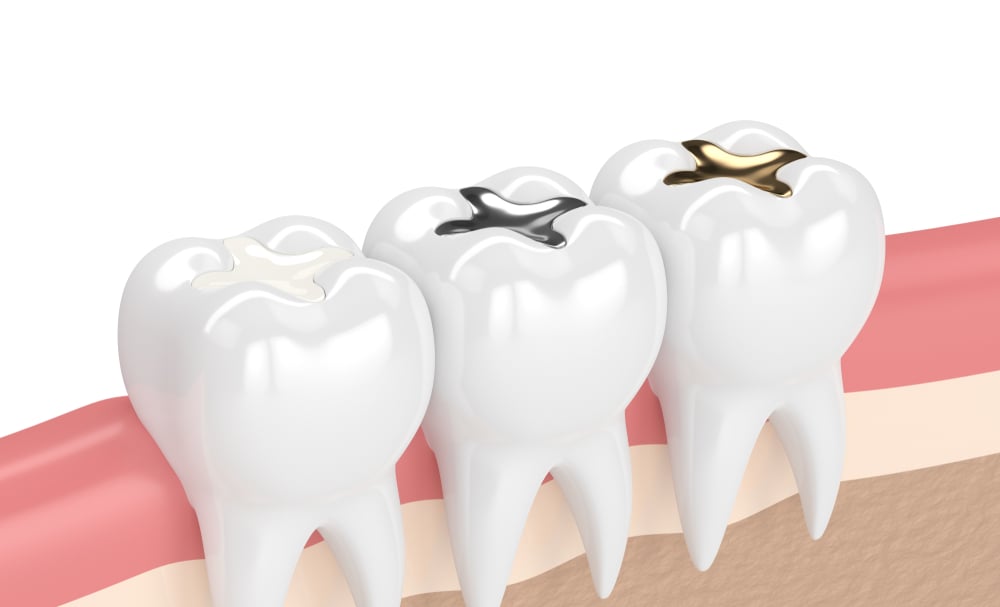Are One’s Prayer and Purification Valid If You Have Tooth Fillings?
Hanafi Fiqh
Answered by Shaykh Faraz Rabbani
Question
Is it true that salat and wudu in the Hanafi School are invalid if you have a filling in your tooth?
Answer
In the Name of Allah, Most Gracious, Most Merciful
“Allah desires for you ease; He desires not hardship for you; and (He desires) that you should complete the period, and that you should magnify Allah for having guided you, and that you may be thankful.” [Quran, 2:185]
It is not true that the purification or prayer of someone with fillings are in question in the Hanafi school.
Rather, the wudu and ghusl of someone with fillings are valid without a doubt in the Hanafi school, notwithstanding the general rule that the mouth must be washed in ghusl.
This is indicated by the transmitted position of Imam Abu Hanifa and his students and the texts of the top scholars of the Hanafi school.
This has been explicitly confirmed by the top Hanafi scholars of both India (including the great Imam Ahmad Rida Khan (Allah have mercy on him) and Imam Ashraf Ali al-Tahanawi (Allah have mercy on him)), and elsewhere (including Allama Adib al-Kallas).
How?
1. It is established from Imam Abu Hanifa and his top students (Allah have mercy on them) themselves that it is permitted to use fillings (though not of gold according to the Imam*) when there is need for them. [Tahawi, Sharh Ma`ani al-Athar, 4.257; Kasani, Bada`i al-Sana`i 5.132; Marghinani, al-Hidaya; al-Fatawa al-Hindiyya, 5.336; Haskafi/Ibn Abidin, Radd al-Muhtar `ala al-Durr al-Mukhtar, 5.231]] Abu Hanifa’s Companions allowed even gold fillings–though getting silver or other fillings is superior.
2. It has been established that in certain cases of absolute, excessive hardship or non-possibility it is permitted to leave washing some part of the limbs in wudu and ghusl. [Halabi, Sharh Munyat al-Musalli al-Kabir; al-Fatawa al-Hindiyya; Haskafi/Ibn Abidin, Radd al-Muhtar `ala al-Durr al-Mukhtar]
3. Given this, and given that the filling is considered to be effectively a fixed part of the tooth, the top fuqaha have confirmed in their legal verdicts that which is understood from the permissibility of fillings: the wudu and ghusl of those who have fillings is valid without doubt. [Otherwise, imagine how bizarre it would be to affirm that, “It is permitted for you to use fillings. However, your worship will no longer be valid.”]
Among those who discussed this are two great fuqaha of the Indian Subcontinent:
Imam Ahmad Rida Khan (Allah have mercy on him) in his Fatawa Ridawiyya (1.452-453) and
Imam Ashraf Ali al-Tahanawi (Allah have mercy on him) in his Imdad al-Fatawa (1.19-20), both mentioning the above reasoning.
And Allah alone gives success.
Wassalam,
[Shaykh] Faraz Rabbani
Shaykh Faraz Rabbani spent ten years studying with some of the leading scholars of recent times, first in Damascus, and then in Amman, Jordan. His teachers include the foremost theologian of recent times in Damascus, the late Shaykh Adib al-Kallas (may Allah have mercy on him), as well as his student Shaykh Hassan al-Hindi, one of the leading Hanafi fuqaha of the present age. He returned to Canada in 2007, where he founded SeekersGuidance in order to meet the urgent need to spread Islamic knowledge–both online and on the ground–in a reliable, relevant, inspiring, and accessible manner. He is the author of: Absolute Essentials of Islam: Faith, Prayer, and the Path of Salvation According to the Hanafi School (White Thread Press, 2004.) Since 2011, Shaykh Faraz has been named one of the 500 most influential Muslims by the Royal Islamic Strategic Studies Center.
